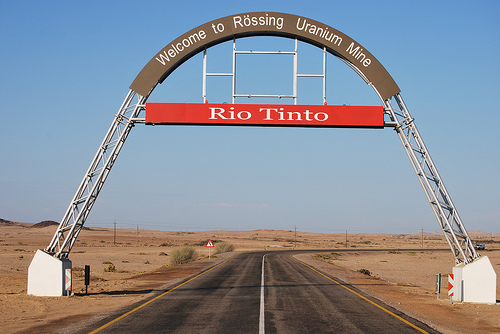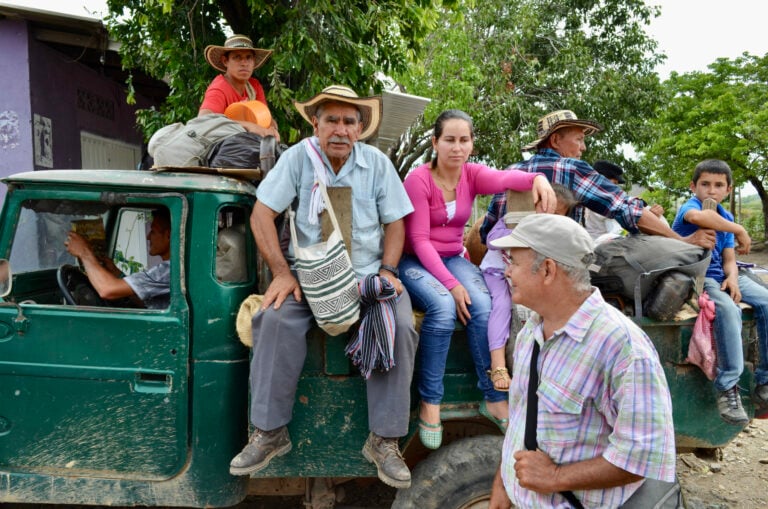
Little profit for African countries from uranium mining
For African countries, the revenue derived from the uranium mining operations of multinational corporations is – despite the high price of uranium – minimal, uncertain and volatile. The financial agreements that these countries make with the uranium producers regarding their share in the profits are the primary reason for this state of affairs. These contracts are often the result of negotiations that take place behind closed doors.
The report Radioactive Revenues analyses the financial aspects of uranium mining in the main African uranium producing countries – Namibia, Niger, Malawi and South Africa – and examines the activities of the four largest multinational uranium mining companies in Africa: the French AREVA group, the English-Australian Rio Tinto, the Australian Paladin Energy and the South-Africa-based AngloGold Ashanti.
Currently, one-fifth of all uranium worldwide is mined in Africa, and production is expected to double in the next two years. Nevertheless, uranium mining remains an uncertain source of revenue for African countries given the unstable price of uranium and the dependence on corporate profits. The primary sources of revenue from uranium mining for African countries are corporate income taxes and royalties (a percentage of uranium sales).
But the financial arrangements between multinational corporations and African governments vary widely. For example, Niger has acquired the right to sell a portion of the uranium produced itself rather than relying on AREVA to do so. In addition, Niger’s royalties rate for uranium is higher than that in Namibia. Paladin Energy in Malawi and AngloGold Ashanti in South Africa pay less tax and other incentives per kilogram of uranium sold than Rio Tinto in Namibia and AREVA in Niger. The multinational corporations are also allowed to write off investments at an expedited rate, further reducing the value and certainty of revenues to host states. Over the past five years, total revenues received by host states amounted to only approximately 17% of the value of the uranium sold.
Lack of transparency
Investment agreements between governments and multinational are rarely made public. Of the four companies, the researchers found Paladin Energy to be the least transparent about its payments to Malawi and Namibia. In addition, Paladin is the only company of the four not participating in the EITI and the only one that declined to provide any information for the study. Nevertheless, SOMO researchers discovered that in Malawi, for example, Paladin insisted that the government not make any changes in domestic law unfavourable to its investment for the next ten years. Of the four countries investigated, only Niger participates fully in the EITI.
"Given the uncertainty and volatility of revenues and the major risks to health, safety and environment that uranium mining entails, African countries would be better advised to seek investment in sustainable alternatives such as renewable energy," said Joseph Wilde-Ramsing, senior researcher at SOMO. "In countries that do allow uranium mining, governments and companies must make investment agreements public and ensure that the proceeds benefit the welfare of the communities and workers affected by the mining operations.”
Related news
-
Overconsumption of transition minerals will cost us the earthPosted in category:Opinion
 Alejandro GonzálezPublished on:
Alejandro GonzálezPublished on: Alejandro González
Alejandro González -

-


